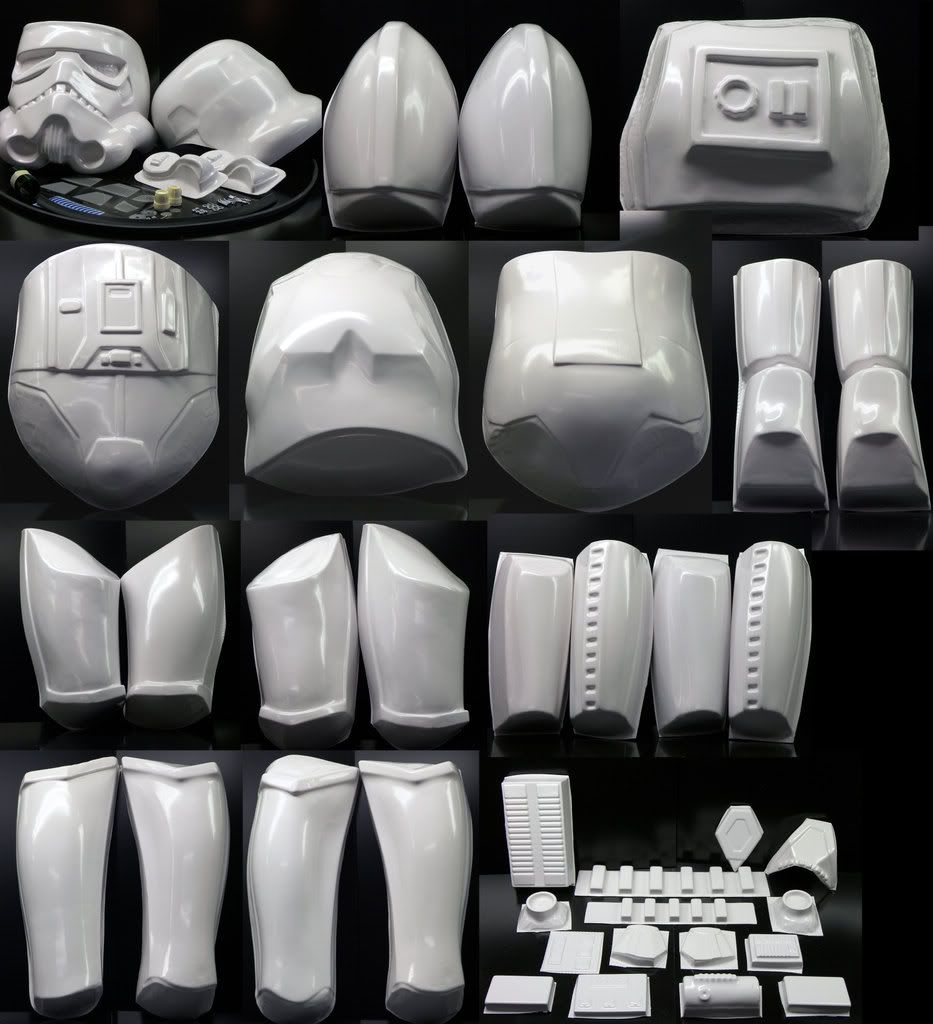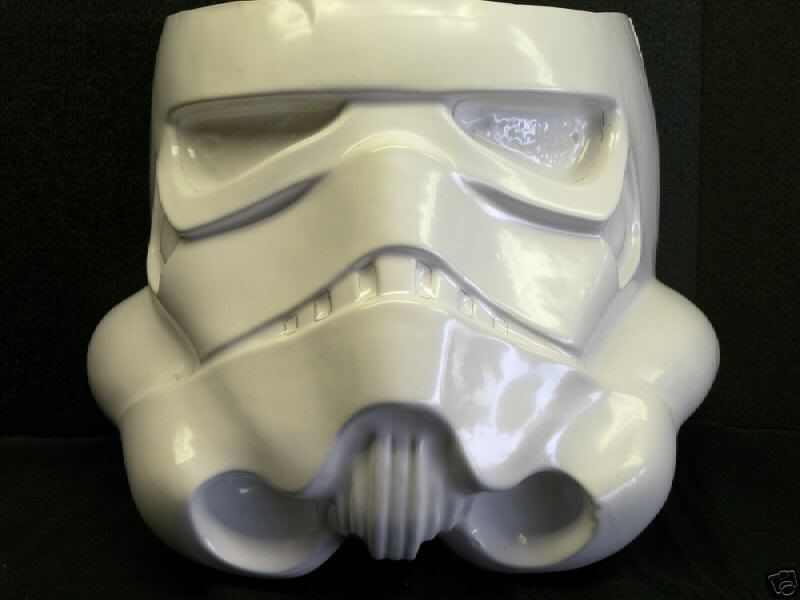I don't think the ethics on recasting has ever been properly defined. It's been discussed thoroughly, and with both sides in extreme disagreement. So let me just offer a different perspective. Everything that is a prop replica and not a production original is a copy - be it first generation, second generation or beyond.
So rather than debate the semantics of the word "recast" I'd like to focus more on *how* a vendor acquired his templates. Did he do so with integrity or did he take from another prop owner or artist without their consent?
Accurate props come into the fandom one of two ways.
1. Someone takes time to sculpt something based on photos, measurements, references, etc. and produces an original work.
2. Someone makes a financial investment and purchases a production prop (be it screen-used or standby).
In the above two examples, a cost is incurred, be it a labor of love or financial.
Then there is the cost of duplication. Taking the extra steps to ensure shape integrity and casting quality requires additional costs, preparation and process.
Let's say someone sculpted a Stormtrooper or bought an original suit and offered 6 copies to recover his cost investment and financial risk. Let's say the original prop costs him $10,000 to procure and another $2,000 for duplication. The original six copies end up costing fans $2,000 each.
The typical attitude stemming from "I want, therefore I copy" tries to obtain this first generation cast and then illicitly make copies. The recaster here took no financial risk. The attitude among costume organizations I've seen is that the recaster is a hero for making it more affordable for fans, but this justification is immoral.
I also see recasters and supporters say, "Well, what gives you the right to have made copies anyway? It's all Lucasfilm property." That is a weak argument because it's limited to intellectual property, not physical property, and therefore this is a form of plagiarism or theft. Further, an artist sculpting an original sculpt is entitled to his own physical art and physical property. Anyone who tires that "It's not your property; it's Lucasfilm" argument when breaking into my home to take my Stormtrooper sculpt and I can assure you that such an individual is bound for jail for theft, period.
Another justification: "But I made improvements." If you steal someone's car and repaint the outside or alter the engine to purr better, you're still going to jail. If a recaster has the skills to sculpt improvements, why not go the whole 9 yards and sculpt an original? Better yet, the recaster should do so, then report back to us on how he felt when he saw his sculpt get illicity duplicated and sold on eBay - and selling at a fraction of the original price. The sense of robbery and violation drive collectors and sculptors away from the hobby.
"But it's not in our organization's charter to mandate against recasting. We're doing it for charity anyway, so what's the big deal?" The big deal of people exhibiting this attitude is that they'll steal and copy illicitly at someone else's expense - and so long as it's not in their "organization's charter" they got their jollies as grown men dressing up as stormtroopers. Are costuming organizations telling us it's okay for them to violate another human being, and costuming for charity somehow erases that moral violation? I wasn't born yesterday.
"But in recasting, I'm not making any money." Bull. So you're not making $500 per suit, you're making $50. But twenty suits later, that's $1,000 profit. I don't know about you, but once the vacform machine and other start-up costs are recovered, that's pure profit.
A recaster - in the sense of one involved in illicit duplication - made no contribution towards acquiring the original prop or to sculpt an original work of art - but rather took the quick route and plagiarized it without the original owner/artist's consent. Basically robbing someone to become a hero to costumers who don't want to pay the price. He might make "improvements" to try to conceal the origins of his template, and in some cases some vendors have outright lied to the public that their product is "cast off original" - so then those less studied buy into it... to later discover the deception... to later offer their stuff for sale...
... at which point they either find someone unknowledgeable enough to buy it (perpetuating the recast prop/costume) or they don't and are stuck with illicitly duplicated merchandise.







